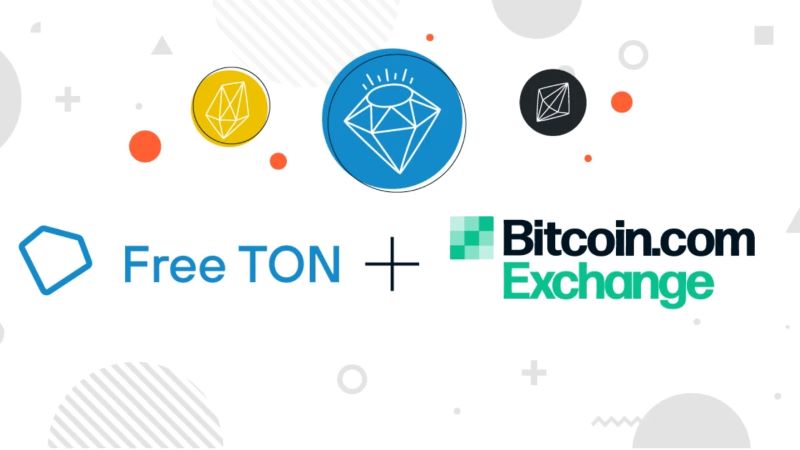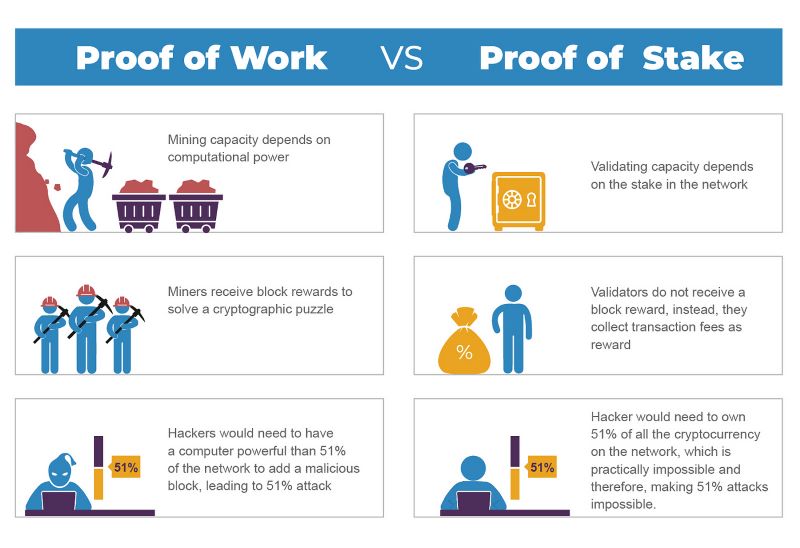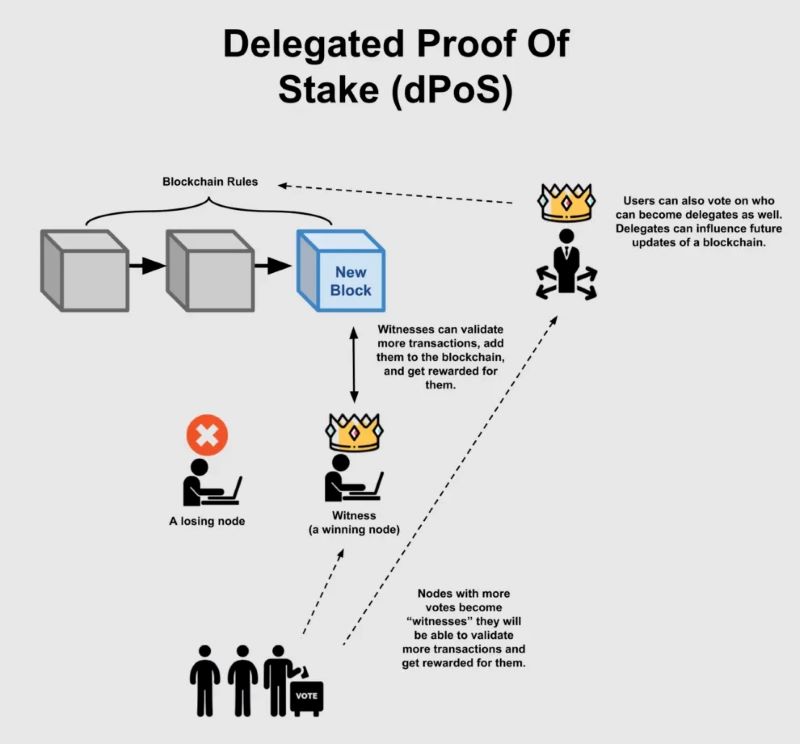Delegated Proof of Stake Demystified: Unlocking Crypto’s Governance Secrets
Curious about what is delegated proof of stake in crypto? You’re in the right place! DPoS is where the power of blockchains meets democracy. See, unlike old-school mining or staking solo, DPoS lets coin holders vote for who guards the network. It’s like choosing the best class rep to keep our crypto world safe and sound. Fast, green, and cutting-edge, DPoS is reshaping how we think about digital money. Stick around, and I’ll show you the ropes, from the ABCs to the complexities. Ready to crack the code of crypto governance? Let’s dive in.
Understanding the Fundamentals of Delegated Proof of Stake
What is DPoS and How Does it Differ from PoW and PoS?
Have you ever wondered how crypto stays safe and checks all transactions? This is the big job of DPoS. Let’s break it down simply: Delegated Proof of Stake, or DPoS, is a way for cryptocurrencies to keep a shared and true record of who owns what. It’s like picking a few trusted people in a game to watch the score. Now, how is DPoS different from PoW and PoS?
PoW, short for Proof of Work, is like a tough math contest where the first one to solve it wins and gets to add to the blockchain. It takes a lot of computer power and energy. PoS, or Proof of Stake, is where you can join the contest if you hold coins. The more you have, the higher your chance to win and add to the blockchain. DPoS is like PoS, but instead of everyone trying to win, coin holders pick a few delegates to do the work. This means less power used, and things move faster.
The Role of Voting and Election in DPoS Systems
In DPoS, voting is super important. Everyone with coins has a say on who runs the show. This is where the term “delegated” comes in. You hand over your voting power to a delegate you trust. These champions of the network are block producers who add new blocks to the blockchain. It’s like voting for class president because you think they will do a great job for the class.
Each coin you hold is a vote. The more coins you stake, the louder your voice. The chosen delegates, often called witnesses or validators, have a key role. They make sure all transactions are correct and keep the blockchain secure and fair. Just like in school elections, if these top dogs don’t keep their promises, coin holders can vote them out. It’s democracy in action, with real stakes in the game.
This system of voting and election keeps everyone on their toes. DPoS aims to be fair and fast; the network can quickly agree on the current state of the blockchain. This quick agreement is also known as reaching consensus, and it’s a huge deal in crypto. With DPoS, because fewer people are in charge, we get our blockchain business done without the heavy lifting that PoW requires, and with more togetherness than PoS.
So, when you think of DPoS, remember: it’s like a democracy where the best get to lead, thanks to everyone’s vote. And just like any other way to reach consensus in crypto, it has its fans and critics. But in the growing world of digital money, DPoS stands out by helping make decisions faster and with less energy. It turns out, who we trust to keep score in the game of crypto can really make a difference.
The Inner Workings of DPoS Blockchain Systems
The Process of Block Creation and Validation
Let’s dive deep into how a DPoS blockchain ticks. Block creation is the heartbeat of a DPoS system. A DPoS blockchain has a group of trusted folks called witnesses or block producers. These folks get votes from people who hold the cryptocurrency. Think of it like a school class electing a president. People with more coins have a bigger say, like having more votes.
Once elected, these witnesses get to work. They validate transactions and create new blocks. These blocks are like pages in a ledger, and they keep the record of all transactions. If a witness does its job well, it gets rewards, like crypto coins. But if it fails, it can get voted out—no slacking allowed!
Witness and Validator Dynamics in Maintaining Network Integrity
The DPoS system hinges on trust and reputation. Witnesses, also known as validators, keep the network safe and speedy. They check transactions to make sure they’re honest. This means no funny business with coins is possible without them knowing.
Sometimes, people think of witnesses as a small council that runs the show. They keep an eye out for the network’s health and make sure everything is in order. If someone tries to cheat or double-spend, the witnesses are on it.
Everyone in a DPoS system plays a part. Coin holders vote for witnesses and keep them on their toes. Witnesses keep the blockchain rolling smoothly. This teamwork is what makes DPoS stand out in the world of crypto.
The DPoS setup aims to strike a balance. It’s fast, which makes it great for handling a bunch of transactions. It’s also designed to spread power out more than other systems. This setup can help a lot with making decisions and getting stuff done quick.
Now, DPoS isn’t perfect, and that’s okay. It’s got some risks and challenges, but smart folks are working on making it even better every day. By understanding how these parts move together, you can see why DPoS has become a top pick for many new cryptocurrencies.
The nitty-gritty of a DPoS system, from the block creation to the role of witnesses, shows us the unique way this tech works. It’s part of a big family of systems that all aim to keep our digital money safe and sound. And hey, that’s something worth knowing about, right?
Advantages and Challenges of DPoS in Cryptocurrency
DPoS Energy Efficiency and Scalability Benefits
Imagine a world where managing crypto is fast and doesn’t harm the planet. That’s DPoS. It stands for Delegated Proof of Stake. It’s a way to agree on who gets to add new info, or blocks, to a blockchain. You know, like a ledger for crypto transactions. But DPoS doesn’t need much power. It’s because only a few trusted computers, called delegates, can add blocks.
These delegates are like class reps. People with crypto stake, think of it as holding shares, vote them in. More crypto means more votes. Once voted in, they keep the blockchain moving quick and smooth. That’s why DPoS supports many transactions at once, making it scalable.
So, DPoS is way more energy-savvy than mining in Proof of Work (PoW). In PoW, many computers work on the same math problem. Only one wins but all use up power. Like many people baking a cake, but we only eat one. What a waste, right?
Now, DPoS also speeds things up. No need for all computers to agree on each block. This is different from Proof of Stake (PoS) and PoW. It means that in DPoS, you can send and receive crypto faster. Time is money, as they say!
Some coins that use DPoS are EOS and Tron. They show us how DPoS helps blockchains scale and use less energy. This is great news for the environment and for people wanting quick transactions.
Evaluating Security Risks and System Vulnerabilities in DPoS
But hey, no system’s perfect. DPoS has risks too. You see, with fewer computers in charge, if one gets attacked, it can be bad. Hackers like weak spots. And in DPoS, if a bad actor or two get voted as a delegate, they can mess with the blockchain.
Security is not just about hacking though. It’s also about fairness. In DPoS, if you have lots of crypto, you have lots of power. That means the rich could rule the chain, which isn’t fair to small fry.
But there’s good news. Because the community votes, they can kick out bad actors. And in DPoS, we keep checking on our delegates. We make sure they’re doing their job right. Think of it as having a teacher watching over the class reps.
To sum it up, DPoS makes handling crypto fast and green. But we need to be smart about picking our delegates. We also need to watch out for any foul play. It’s like a garden. With good care, it can flourish. But we need to keep an eye on the weeds.
So, while DPoS opens doors to fast, eco-friendly crypto, it brings homework too. We need to stay sharp on security and make sure power stays spread out. By doing this, we can enjoy all the benefits DPoS brings.
Practical Implications of DPoS for Stakeholders
How Economic Incentives Shape Stakeholder Participation
In the Delegated Proof of Stake (DPoS) world, money talks. Simply put, those who hold coins have say. More coins, more say. It’s a democratic way of running a blockchain. Like choosing a class president, token holders vote for delegates. These delegates manage the blockchain’s rules and security. You’re offering your trust and getting a share of the rewards.
To make this really easy to get, let’s imagine a pizza club. If you buy more pizza, the club lets you choose the toppings. In DPoS, buying pizza is like holding tokens. Choosing toppings is like voting for delegates. Everyone wants the pizza club to succeed, because if it does, more people will join, and the pizza gets even better. Delegates keep the club yummy by making good choices like using fresh ingredients. If they mess up, club members can vote to have them replaced.
This works well because everyone wants more rewards. Delegates work to keep the network safe and fast. That way, the coin value stays high or grows. More rewards for them and more rewards for you – pure win-win.
Case Studies: Analysis of EOS and Lisk DPoS Mechanisms
Now, let’s peek into real-life crypto clubs – EOS and Lisk. On EOS, there’s a big table with 21 seats for top delegates called block producers. They get these seats through token holder votes. They’re like the cooks in our pizza club. If they cook bad pizza – making the blockchain slow or unsafe – they can get kicked out. EOS gives token holders a powerful voice. It’s like being able to tell the cook directly how to make your pizza, but you must own enough slices to matter.
With Lisk, it’s a bit different. They have 101 delegate seats instead of just 21. More seats means a better chance for you to take part. It’s like having a bigger pizza club, with more opinions on what makes a great pizza.
Now, EOS tends to serve a lot of pizzas fast – which means their blockchain handles lots of transactions. While Lisk makes fewer pizzas, but they focus on unique tastes – creating diverse and specialized applications.
Bottom line, if you’re part of the DPoS crypto world, you’re not just a token holder. You’re a key player in the game. You have power, you make choices. You’re making sure your coins aren’t just valued but also valuable. After all, a club’s only as good as its members. Make smart choices, and the club – or in this case, the blockchain – thrives.
To wrap things up, we dove into Delegated Proof of Stake (DPoS) and how it stands apart from other systems like Proof of Work (PoW) and Proof of Stake (PoS). We saw the crucial role voting plays in DPoS networks and how blocks get made and checked. It’s clear that witnesses and validators are the backbone of a well-oiled DPoS system, ensuring everything runs smoothly.
We also looked at DPoS advantages like better energy use and the ability to handle lots of transactions quickly. Yet, it’s not without its troubles. We must stay sharp to security risks and weak spots in such systems.
For those holding stakes in crypto, DPoS impacts how they play the game. Incentives guide their choices. Seeing how EOS and Lisk use DPoS gave us real examples of all this in action.
In the end, DPoS is a powerful approach with lots to offer the world of cryptocurrency. It shapes how we interact with and trust these digital systems. As we keep an eye on how these technologies grow, it’s on us to think about how they fit into our digital lives.
Q&A :
What Is Delegated Proof of Stake (DPoS) in Cryptocurrency?
Delegated Proof of Stake (DPoS) is a consensus mechanism used by some blockchains to secure their network and validate new transactions. It is a variation of the Proof of Stake (PoS) model and places emphasis on enhanced speed and efficiency. In DPoS systems, coin holders vote for a select group of delegates, who then have the authority to verify transactions and create new blocks. This method aims to reduce the number of participants needed to validate transactions, thus speeding up the process and increasing scalability.
How Does DPoS Differ From Traditional Proof of Stake?
While traditional Proof of Stake mechanisms also allow coin holders to participate in the validation process, DPoS narrows down the group to a smaller number of elected delegates. These representatives are responsible for the overall maintenance of the blockchain and are frequently rotated to ensure trust and stability. This creates a more democratic and often faster process compared to regular PoS, where any coin holder can potentially become a validator based on the number of coins they stake.
What Are the Advantages of Using DPoS in Blockchain Technology?
The main advantages of using DPoS in blockchain technology include enhanced transaction speed and reduced energy consumption compared to Proof of Work (PoW) systems. It also allows for a more democratic form of governance as all stakeholders have a say in who is selected as a delegate, which can lead to a more equitable distribution of network rewards and responsibilities.
Are There Any Drawbacks to Delegated Proof of Stake?
One potential drawback of DPoS is the risk of centralization, as the network depends on a small group of delegates. If these delegates collude or gain too much influence, it can threaten the decentralization that is fundamental to blockchain technology. Additionally, the reliance on voter engagement can also be a downside if a large percentage of holders do not participate in the voting process, which could lead to a less secure network.
Which Cryptocurrencies Utilize the DPoS Consensus Mechanism?
Several cryptocurrencies have adopted the DPoS consensus mechanism because of its benefits in scalability and efficiency. Notable examples include EOS, Tron, and BitShares. Each of these platforms has developed its own unique variation of DPoS to fit their community governance and network needs. These cryptocurrencies are often recognized for their ability to process a high throughput of transactions and encourage stakeholder involvement.


